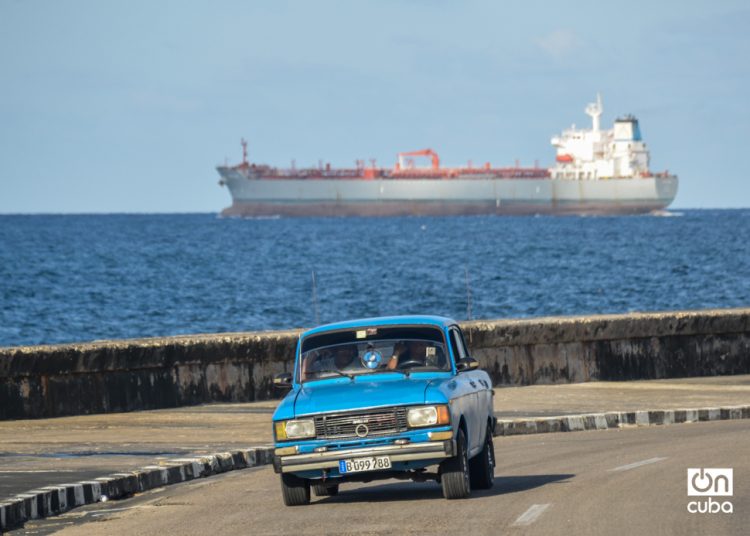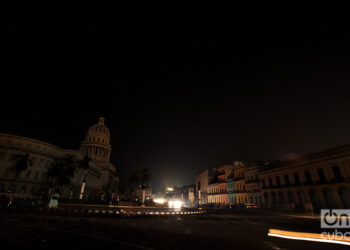The Trump administration has declared the most severe new sanctions against Cuba since President John F. Kennedy imposed an economic embargo prohibiting all trade with the communist island in 1962.
Speaking in Miami on April 17, on the anniversary of the failed U.S.-organized 1961 Bay of Pigs invasion, National Security Adviser John Bolton announced the end of virtually all non-family travel to Cuba and put new limits on the money that Cuban Americans can send their families on the Island.
He also said that the United States will now implement a 23-year-old law aimed at blocking both U.S. and foreign investment in Cuba, first approved by Congress in 1996 as part of a broader package of sanctions against the island, but that remained suspended because of immense opposition by the United States’ allies.
The new and harsh sanctions roll back “the disastrous policies of the Obama era and finally end with the glamorization of socialism and communism,” Bolton said.
A law too controversial to be implemented
Trump’s decision triggered a provision suspended for a long time in 1996 of U.S. sanctions against Cuba, which allows Cuban-Americans to sue in U.S. courts any company that benefits from their property confiscated by Fidel Castro’s regime.
Normally, U.S. courts don’t have jurisdiction over non-citizens’ properties nationalized by a foreign government. For U.S. courts, trying the actions of another government towards its own citizens in its own territory is a challenge to the sovereignty of that government.
The U.S. allies that do business with Cuba are vehemently opposed to it.
In 1996, when that law was approved for the first time, the European Union (EU) filed a complaint with the World Trade Organization (WHO) and adopted a law that prohibited EU members and their companies from complying with the U.S. legislation. Mexico, Canada and the United Kingdom soon followed suit.
In response, President Bill Clinton suspended for six months a provision called Title III, and in 1998 signed an agreement with the EU so that European companies doing business in Cuba would not be targeted.
Since then, every president ―both Democrat and Republican― has renewed the suspension. Trump himself renewed it three times ―until he didn’t do it anymore.
The president has now rekindled international outrage over this sanction, which repeals Clinton’s agreement with the EU and complicates the already complex U.S. relations with Mexico and Canada.
Who wins?
A small, but elite, community benefits from Title III: the former members of the 1%, those of the exiled upper class, who owned almost all the land and businesses in Cuba before the 1959 Revolution.
Most of the wealthy Cubans fled the country after the communist government of Fidel Castro nationalized their businesses and confiscated their homes, bank accounts and property. Some still dream of recovering their lost fortunes.
Now they can sue Cuban, U.S. and foreign companies that benefit in some way from the use of that property.
For example, the former owners of the nickel mines in Cuba could sue for damages Canada’s Sherritt International Corporation, which has invested in Cuba’s nickel industry. The former owners of Cuban hotels could sue the Spanish Meliá hotel group, which manages hotels throughout the island.
Every U.S. and foreign company that does business with Cuba– or might do so in the future – risks being sued if they make use of property once owned by a Cuban exile who is now a U.S. citizen. According to a 1996 State Department analysis, the implementation of Title III could flood federal courts in the United States with up to 200,000 litigations.
Trump’s bet for 2020
Most Cuban-Americans won’t gain anything with Trump’s latest sanctions.
Private residences are exempt of indemnity. So, if the main property one had in Cuba was a house confiscated after January 1, 1959, one is out of the game.
The exiled owners of thousands of small family stores nationalized in 1968 will not receive compensation either, because the law exempts the small Cuban companies that were confiscated.
Those who benefit are the oldest, most conservative and wealthiest segment of the 1.5 million Cuban-Americans in Florida.
Trump believes that those influential Republicans helped him win Florida in 2016 because he promised to adopt a hard line toward Havana, rolling back President Obama’s reestablishment of diplomatic and economic relations with the island.
If the president believes that these new sanctions can deliver Florida again in 2020, he may have miscalculated.
I’ve studied Cuba-U.S. relations for decades. While the activation of the law may please former owners of large businesses in Cuba, it is unlikely that Trump’s new sanctions ―such as limiting the amount of money Cuban-Americans can send to the island― will be popular in that community in general.
A significant majority of Cuban-Americans support the freedom to travel between the United States and Cuba, broader trade ties and President Obama’s decision to normalize relations. Each year, they send three billion dollars to their families on the island, and hundreds of thousands of them travel to Cuba on family visits.
These Cuban-American voters do not want to inflict more economic pain on the Cuban public, which includes their friends and family.
Harming common Cubans
The punitive aspects of the law, which administration officials for months have been implying they would put into practice, are already having an impact.
Cuban-American families who owned the land and facilities in the port of Havana and José Martí International Airport warned cruise companies and airlines that the use of these properties could put them at legal risk.
Along with the money they receive from their families, income related to tourism supports many common Cubans.
If travel companies leave Cuba, and if U.S. and foreign companies hesitate to start new business relationships with the island for fear of incurring lawsuits in the United States, Cuba’s already fragile economy would be affected.
That can play well with Cuba’s old elite. But the rest of Florida’s Cuban-Americans will also feel the pain.











There are many families that had property stolen, were murdered, or escaped with nothing ……. from America after its revolution. Many escaped to Canada and , if allowed to sue, would make claims against Cuban government look like chump change. There must be some greedy law firm somewhere willing to launch a class action suit.